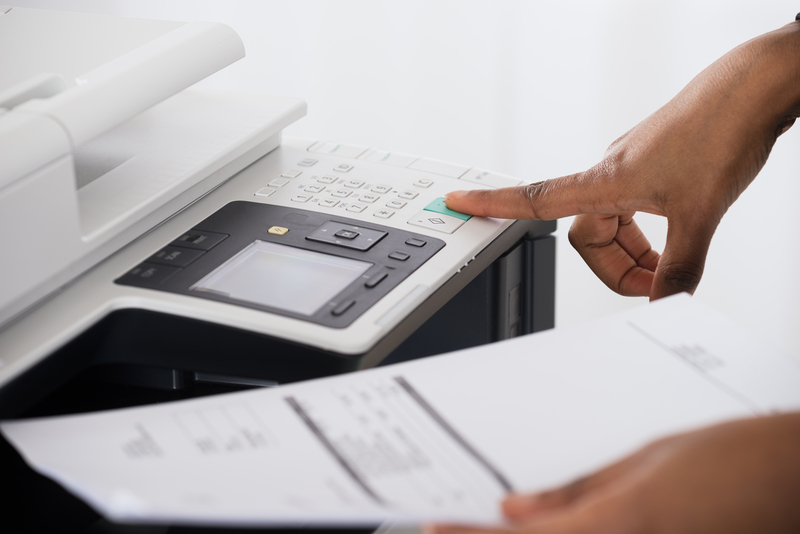Expert Advice to Help You Save Money on Large Waste Item Disposal
Dealing with large waste items can be a costly and daunting task for homeowners, landlords, tenants, and business owners alike. Unwanted furniture, old appliances, construction debris, and bulky garden waste often require special arrangements for disposal. However, with the right strategies, you can save money while also ensuring your large waste disposal is environmentally responsible. In this comprehensive guide, we offer expert tips and best practices to help you cut costs and streamline the process of disposing of large waste items.

Understanding Large Waste Item Disposal
Large waste item disposal, sometimes referred to as bulky waste disposal, involves the removal of items that are too heavy, large, or cumbersome for regular curbside collection. These can include:
- Old furniture (sofas, cabinets, mattresses)
- Large appliances (refrigerators, washing machines, ovens)
- Renovation debris (rubble, wood, drywall)
- Garden waste (branches, tree stumps, sheds)
- Electronic waste (TVs, computers, printers)
Properly managing these large waste items not only saves you money but also helps reduce landfill use and encourages recycling or upcycling. Let's dive into proven ways to reduce your expenses for large waste item disposal.
1. Assess and Plan Your Waste Disposal Carefully
Why Planning Ahead Matters
One common mistake people make is waiting until the last minute to organize the disposal of large waste. Rushed decisions can lead to higher fees and bigger headaches. Effective planning begins by creating an inventory of what needs removal and researching the best disposal methods for each item.
- List all bulky items you intend to dispose of.
- Identify items that require special handling (e.g. fridges, hazardous materials).
- Group similar items to streamline transportation and reduce trips.
- Take dimensions to ensure they fit in disposal vehicles or skips.
Pro Tip: Some waste types, such as electronics or hazardous materials, may have free or subsidized disposal options offered by your local council or recycling center. Check before you pay!
2. Explore Donation and Reuse Opportunities
Give Items a Second Life
Not everything you need to get rid of is necessarily destined for the landfill. Many large waste items are still usable or can be refurbished. Donating or selling large items not only reduces your disposal costs, it benefits someone else and keeps waste out of landfill.
- Contact local charities (Habitat for Humanity ReStore, Salvation Army, Goodwill) - many arrange free pickups for furniture and appliances in good condition.
- List items on online marketplaces such as Craigslist, Facebook Marketplace, or Freecycle - someone in your community might be looking for exactly what you have.
- Organize a neighborhood "free day" so people can take what they want before collection.
This approach can reduce the volume of waste you have to dispose of, saving on hauler fees or the size of skip/bin you need to hire.
3. Compare Local Waste Disposal Services
Don't Settle for the First Quote
Whether you're considering a junk removal company, renting a skip, or using local municipal collection services, comparing quotes and services is critical to saving money. Rates can vary widely depending on your location, item type, and volume.
- Ask for itemized quotes - ensure there are no hidden fees like labor, permits, or extra trips.
- Check if companies charge by weight, volume, or item count.
- See if grouping items saves you money versus multiple small pickups.
- Investigate discounts for advance bookings or off-peak days.
- Read online reviews to compare reliability and customer service.
Pro Tip: Many cities offer a certain number of free or low-cost bulky waste pick-ups per year. Always check with your municipal waste department first.
4. Rent the Right Size Skip or Dumpster
Optimize Size for Cost Efficiency
Overestimating or underestimating your waste volume can significantly impact how much you spend on large-item disposal. Ordering a bin that is too large means paying for unused space, while one that's too small can result in overage charges or additional rentals.
- Accurately measure and estimate your waste volume.
- Select the skip or dumpster size that matches your needs, with minimal excess.
- Shared skip hire: Team up with neighbors for a joint rental and split the cost.
Many companies offer calculators to estimate the right bin size based on typical household items. If in doubt, ask the provider for advice to avoid unnecessary expenses.
5. Separate Waste Types to Lower Costs
Sorting Means Savings
Waste companies often charge extra for mixed loads or prohibited materials. Sorting your waste into categories - such as recyclables, green waste, and general rubbish - can reduce charges and sometimes even allow some items to be picked up for free.
- Remove metals for scrap - some dealers pay for old appliances or metal goods.
- Bundle green/garden waste separately for composting or free collection days.
- Keep hazardous materials (paint, chemicals, electronics) apart and inquire about special cycles or designated drop-offs.
Pro Tip: Mixing prohibited waste in standard skips or bins can result in fines or the load being refused. Always check the list of acceptable materials with your provider.
6. Consider DIY Drop-Offs
Save on Collection Fees
If you have access to a suitable vehicle (like a pickup truck or van), consider delivering your bulky waste items directly to your local recycling center or tip. Municipal centers often have free or nominal fees for residents, especially for certain materials.
- Check your local council or city website for acceptable waste types and operating hours.
- Sort and secure items safely for transport.
- Bring proof of residency if required for free household waste drop-off.
This method is especially cost-effective for one-off or small loads and allows you to ensure items are disposed of responsibly.
7. Maximize Value of Scrap and Recyclables
Turn Unwanted Items Into Cash
Before disposing of large waste items, determine if any components have scrap value. Metals, electronics, and certain plastics can sometimes be sold to scrap yards or specialized recyclers, offsetting your overall disposal costs.
- Remove and separate metal parts (copper, aluminum, steel) from appliances and furniture.
- Check for local e-waste collection events, which may pay by the pound or offer free disposal.
- Some recycling centers reimburse for specific recyclables, including car batteries and scrap metal.
Pro Tip: Always strip electronics of personal data before recycling or selling.
8. Take Advantage of Local Bulk Collection Days
Use Community Services
Many towns and cities offer scheduled bulk item collection events for residents. Taking advantage of these opportunities can save considerable money compared to hiring private services.
- Register for municipal collection events well in advance.
- Observe volume limits and excluded items (listed on your city's waste department website).
- Prepare and move items to the curb on designated days to avoid missed pickups.
This solution is particularly effective for furniture, mattresses, and certain large appliances.
9. Avoid Hidden Costs and Fines
Be Aware of Waste Regulations
Improper or illegal disposal of large waste items can lead to substantial fines or fees. Always ensure you are following all local regulations, permit requirements, and disposal guidelines.
- Never dump items on vacant lots or roadside - most areas have strict enforcement and surveillance.
- Ask waste service providers about permits or parking permissions needed for skips placed on public property.
Pro Tip: Check for any new legislation regarding hazardous or WEEE (Waste Electrical and Electronic Equipment) disposal to avoid penalties.
10. Consider Professional Junk Removal--But Shop Smart
When to Hire the Pros
Sometimes, the most efficient option is to use a professional large item disposal service, particularly for time-sensitive clearouts or heavy, difficult-to-move items. Still, to save money:
- Get at least three quotes.
- Bundle as many items as possible into one visit to maximize value.
- Read reviews and check for licenses and insurance to avoid scams.
Some companies offer better rates for specific types of waste or discounts for repeat customers or seniors.

FAQs: Saving Money on Large Waste Item Disposal
How can I dispose of a large mattress for free?
Look for city-sponsored mattress recycling programs, free bulk collection days, or charities that accept mattresses in good condition. Always check local requirements regarding mattress packaging and drop-off points.
Is it cheaper to hire a skip or a junk removal company for large item disposal?
It depends on the volume, labor required, and your ability to load the skip yourself. For hands-off removals of heavy or awkward items, junk removal may cost more but saves time and effort. For DIY projects, skips can be more economical if well-filled and shared.
What items are typically prohibited from standard large waste collection?
Hazardous chemicals, asbestos, certain electronics, and tires are often excluded. Check with your provider for a detailed list of banned items.
Are there tax deductions for donating large waste items?
In some cases, donations of furniture or appliances to registered charities can be tax-deductible. Obtain a receipt from the organization at the time of donation.
Conclusion: Smarter Large Waste Item Disposal = Bigger Savings
Dealing with large waste item disposal doesn't have to break the bank. By planning ahead, exploring reuse and recycling opportunities, comparing service providers, and being mindful of regulations, you can cut your costs substantially. Whether you're clearing out after a renovation, downsizing, or just decluttering, applying these expert tips will keep your disposal process efficient, affordable, and eco-friendly.
Make informed decisions, make the most of local resources, and keep more money in your pocket while cleaning up your space!
